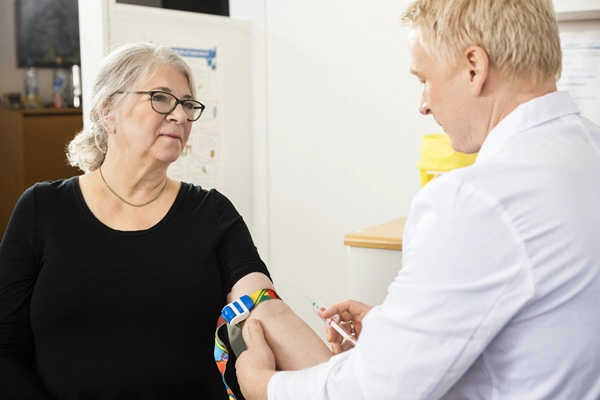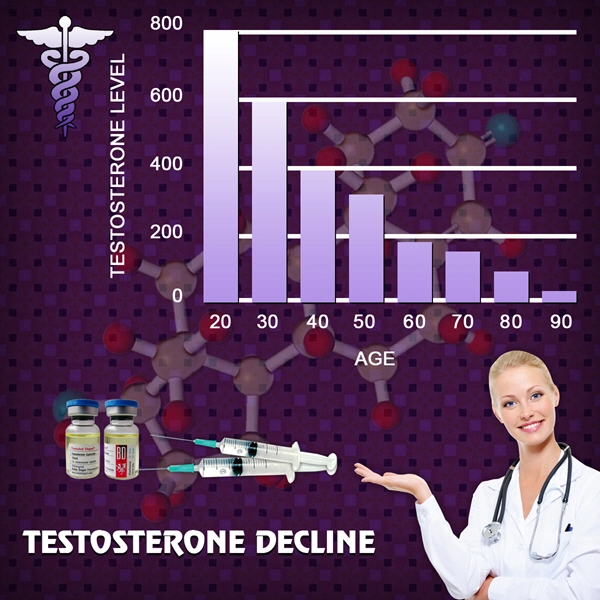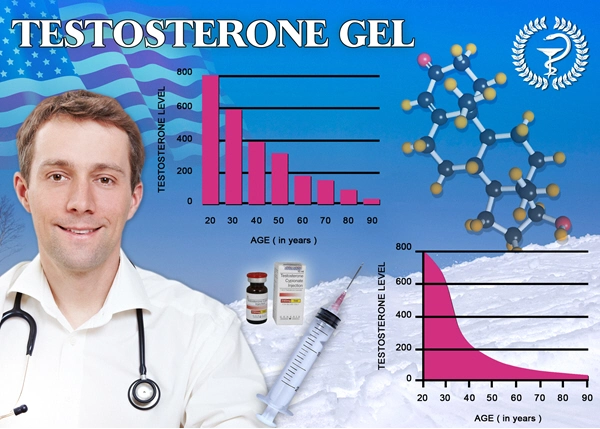Introduction
The relationship between testosterone levels and prostate health has long been a topic of interest and concern among American men. As the primary male sex hormone, testosterone plays a crucial role in various aspects of male health, including sexual function, muscle mass, and bone density. However, its impact on prostate health has been the subject of ongoing debate and research. In this article, we will delve into the latest findings on testosterone levels and prostate health in American male populations, providing a comprehensive overview of the current understanding and its implications for men's health.
Testosterone and Prostate Cancer Risk
Recent studies have shed light on the association between testosterone levels and the risk of developing prostate cancer, a prevalent concern among American men. Contrary to earlier beliefs, emerging evidence suggests that higher testosterone levels may not necessarily increase the risk of prostate cancer. In fact, some research indicates that low testosterone levels could be linked to more aggressive forms of the disease. These findings challenge the traditional view that testosterone fuels prostate cancer growth and underscore the need for a more nuanced understanding of this complex relationship.
Testosterone Replacement Therapy and Prostate Health
Testosterone replacement therapy (TRT) has become increasingly popular among American men seeking to address symptoms of low testosterone, such as decreased libido and fatigue. However, concerns about the potential impact of TRT on prostate health have persisted. The latest research suggests that, when properly monitored and administered, TRT may not significantly increase the risk of prostate cancer in men without a prior history of the disease. Nevertheless, men considering TRT should undergo thorough evaluation and monitoring to ensure its safety and efficacy in relation to their prostate health.
Testosterone Levels and Benign Prostatic Hyperplasia
Benign prostatic hyperplasia (BPH), a non-cancerous enlargement of the prostate gland, is a common condition affecting American men as they age. The role of testosterone in BPH development and progression has been a subject of investigation. Current evidence suggests that testosterone levels may not be directly linked to the development of BPH. Instead, the conversion of testosterone to dihydrotestosterone (DHT) within the prostate gland appears to play a more significant role in BPH. This insight has led to the development of targeted therapies that aim to inhibit the conversion of testosterone to DHT, offering potential relief for men with BPH.
Testosterone and Prostate-Specific Antigen Levels
Prostate-specific antigen (PSA) is a protein produced by the prostate gland, and its levels in the blood are often used as a screening tool for prostate cancer. The relationship between testosterone levels and PSA has been a topic of interest in recent research. Studies have shown that testosterone replacement therapy can lead to a modest increase in PSA levels, but this increase is typically within the normal range and does not necessarily indicate prostate cancer. American men undergoing TRT should be aware of this potential effect and discuss PSA monitoring with their healthcare providers to ensure proper interpretation of their results.
Implications for American Men's Health
The latest research findings on testosterone levels and prostate health have significant implications for American men's health. It is crucial for men to engage in open and informed discussions with their healthcare providers about their testosterone levels and prostate health. Regular screening, monitoring, and personalized treatment plans can help optimize men's overall health and well-being. As research continues to evolve, American men should stay informed about the latest developments and work closely with their healthcare teams to make well-informed decisions regarding their prostate health and testosterone levels.
Conclusion
The relationship between testosterone levels and prostate health in American male populations is a complex and evolving field of research. Recent findings challenge traditional beliefs and highlight the need for a more nuanced understanding of this association. By staying informed about the latest research and working closely with healthcare providers, American men can navigate the intricacies of testosterone levels and prostate health, ultimately promoting their overall well-being and quality of life.

- Unlocking Vigor: Testosterone, The Quintessential Powering Force of Masculinity [Last Updated On: February 25th, 2025] [Originally Added On: February 25th, 2025]
- Hormonal Harmony: The Orchestra Conductor of Life - Testosterone [Last Updated On: February 26th, 2025] [Originally Added On: February 26th, 2025]
- A Chronological Expedition: Testosterone's Mysterious and Pivotal Voyage Across Human History [Last Updated On: February 27th, 2025] [Originally Added On: February 27th, 2025]
- The Unseen Power: Unveiling the Unsuspected Advantages of Robust Testosterone Levels [Last Updated On: February 28th, 2025] [Originally Added On: February 28th, 2025]
- Demystifying Testosterone: A Comprehensive Exploration of Fact and Fiction [Last Updated On: February 28th, 2025] [Originally Added On: February 28th, 2025]
- Harnessing the Vigor of Life: Decoding the Influence of Testosterone [Last Updated On: March 1st, 2025] [Originally Added On: March 1st, 2025]
- Exploring Nutritional Strategies for Testosterone Enhancement [Last Updated On: March 2nd, 2025] [Originally Added On: March 2nd, 2025]
- Enhancing Testosterone Levels Through Exercise: Mechanisms, Types of Exercises, and Age-Related Considerations [Last Updated On: March 3rd, 2025] [Originally Added On: March 3rd, 2025]
- Understanding Testosterone's Role in Cognitive Function and Mood [Last Updated On: March 4th, 2025] [Originally Added On: March 4th, 2025]
- Unveiling the Vital Role of Testosterone in Women's Health: A Comprehensive Overview [Last Updated On: March 4th, 2025] [Originally Added On: March 4th, 2025]
- Understanding Testosterone's Role in Male Health and Reproductive Function [Last Updated On: March 5th, 2025] [Originally Added On: March 5th, 2025]
- Genetics and Testosterone: Predestined Levels or Modifiable by Lifestyle? [Last Updated On: March 5th, 2025] [Originally Added On: March 5th, 2025]
- Testosterone's Crucial Role in Male Development and Health Across Lifespan [Last Updated On: March 6th, 2025] [Originally Added On: March 6th, 2025]
- Optimizing Testosterone Levels: Lifestyle Strategies for Health and Vitality [Last Updated On: March 7th, 2025] [Originally Added On: March 7th, 2025]
- Optimizing Men's Health: Advances in Testosterone Replacement Therapy and Personalized Approaches [Last Updated On: March 8th, 2025] [Originally Added On: March 8th, 2025]
- Managing Testosterone Decline in Men: Strategies for Health and Vitality as You Age [Last Updated On: March 9th, 2025] [Originally Added On: March 9th, 2025]
- Unveiling the Nightly Ritual: How Sleep Boosts Testosterone in American Men [Last Updated On: March 12th, 2025] [Originally Added On: March 12th, 2025]
- Unlocking the Potential of Testosterone: Pioneering Advances in Hormonal Health for American Males [Last Updated On: March 13th, 2025] [Originally Added On: March 13th, 2025]
- Unraveling the Interplay of Stress, Cortisol, and Testosterone: A Guide to Hormonal Harmony for American Males [Last Updated On: March 13th, 2025] [Originally Added On: March 13th, 2025]
- Unleashing Potential: The Role of Testosterone in Athletic Performance Among American Males [Last Updated On: March 15th, 2025] [Originally Added On: March 15th, 2025]
- Testosterone's Impact on Metabolism and Fat Burning in American Males [Last Updated On: March 18th, 2025] [Originally Added On: March 18th, 2025]
- Boosting Testosterone: Supplements, Herbs, Diet, and Exercise Strategies for American Males [Last Updated On: March 18th, 2025] [Originally Added On: March 18th, 2025]
- Testosterone's Impact on Heart Health in American Men: Risks, Therapy, and Lifestyle [Last Updated On: March 18th, 2025] [Originally Added On: March 18th, 2025]
- Testosterone's Crucial Role in Maintaining Bone Density in American Males [Last Updated On: March 19th, 2025] [Originally Added On: March 19th, 2025]
- Testosterone's Role in Enhancing Workplace Productivity and Cognitive Function [Last Updated On: March 19th, 2025] [Originally Added On: March 19th, 2025]
- Testosterone's Role in Male Libido: Strategies for Enhancing Sexual Health [Last Updated On: March 19th, 2025] [Originally Added On: March 19th, 2025]
- Low Testosterone in Men: Causes, Symptoms, and Effective Treatment Options [Last Updated On: March 20th, 2025] [Originally Added On: March 20th, 2025]
- Environmental Toxins and Their Impact on Testosterone Levels in American Males [Last Updated On: March 20th, 2025] [Originally Added On: March 20th, 2025]
- Testosterone's Impact on Mood, Memory, and Motivation in American Males [Last Updated On: March 21st, 2025] [Originally Added On: March 21st, 2025]
- Testosterone's Role in Immune Health and Protection in American Males [Last Updated On: March 21st, 2025] [Originally Added On: March 21st, 2025]
- Achieving Hormonal Harmony: Testosterone's Interplay in Men's Health [Last Updated On: March 22nd, 2025] [Originally Added On: March 22nd, 2025]
- Meditation's Impact on Testosterone Levels in American Males: Benefits and Practices [Last Updated On: March 22nd, 2025] [Originally Added On: March 22nd, 2025]
- Resistance Training Boosts Testosterone: Benefits and Strategies for American Males [Last Updated On: March 22nd, 2025] [Originally Added On: March 22nd, 2025]
- Navigating Testosterone Concerns: Preparation, Communication, and Management Strategies [Last Updated On: March 22nd, 2025] [Originally Added On: March 22nd, 2025]
- Optimal Testosterone Levels: Importance, Monitoring, and Natural Enhancement Strategies for American Males [Last Updated On: March 22nd, 2025] [Originally Added On: March 22nd, 2025]
- Testosterone's Role in Enhancing Cardiovascular Health in American Males [Last Updated On: March 23rd, 2025] [Originally Added On: March 23rd, 2025]
- Andropause: Understanding Male Menopause and Testosterone Decline in American Men [Last Updated On: March 23rd, 2025] [Originally Added On: March 23rd, 2025]
- Urban vs. Rural Living: Impacts on Testosterone Levels in American Males [Last Updated On: March 23rd, 2025] [Originally Added On: March 23rd, 2025]
- Testosterone Monitoring: Empowering Men with Health Apps and Wearables [Last Updated On: March 23rd, 2025] [Originally Added On: March 23rd, 2025]
- Intermittent Fasting: A Promising Method to Boost Testosterone in American Males [Last Updated On: March 24th, 2025] [Originally Added On: March 24th, 2025]
- Testosterone's Impact on Ambition and Competitiveness in American Men [Last Updated On: March 24th, 2025] [Originally Added On: March 24th, 2025]
- Testosterone Revolution: Redefining Masculinity and Health in the 21st Century [Last Updated On: March 24th, 2025] [Originally Added On: March 24th, 2025]
- Testosterone's Role in Muscle Recovery for American Males: Strategies and Insights [Last Updated On: March 24th, 2025] [Originally Added On: March 24th, 2025]
- Testosterone's Impact on Mental Health and Cognitive Function in American Men [Last Updated On: March 25th, 2025] [Originally Added On: March 25th, 2025]
- Boosting Testosterone: Diet, Exercise, Sleep, and Stress Management for American Males [Last Updated On: March 25th, 2025] [Originally Added On: March 25th, 2025]
- Hormonal Health for American Males: Understanding and Boosting Testosterone Levels [Last Updated On: March 25th, 2025] [Originally Added On: March 25th, 2025]
- Social Interactions Impact Testosterone Levels in American Males: Health Implications [Last Updated On: March 25th, 2025] [Originally Added On: March 25th, 2025]
- Testosterone's Role in Longevity: Insights for American Males [Last Updated On: March 25th, 2025] [Originally Added On: March 25th, 2025]
- Testosterone's Crucial Role in Enhancing Mental Resilience in American Men [Last Updated On: March 25th, 2025] [Originally Added On: March 25th, 2025]
- Music and Art Boost Testosterone in American Men: A Holistic Approach [Last Updated On: March 25th, 2025] [Originally Added On: March 25th, 2025]
- Testosterone Management for American Males: Lifestyle, Diet, and Medical Insights [Last Updated On: March 25th, 2025] [Originally Added On: March 25th, 2025]
- Boosting Testosterone: The Vital Role of Outdoor Activities for American Males [Last Updated On: March 26th, 2025] [Originally Added On: March 26th, 2025]
- Positivity Boosts Testosterone: Strategies for American Men's Hormonal Health [Last Updated On: March 26th, 2025] [Originally Added On: March 26th, 2025]
- Testosterone's Impact on Sleep: Strategies for American Males to Enhance Rest [Last Updated On: March 26th, 2025] [Originally Added On: March 26th, 2025]
- Boost Testosterone Naturally: Effective Home Workouts with Resistance Bands [Last Updated On: March 26th, 2025] [Originally Added On: March 26th, 2025]
- Modern American Diets and Their Impact on Men's Testosterone Levels: Strategies for Optimization [Last Updated On: March 26th, 2025] [Originally Added On: March 26th, 2025]
- Managing Testosterone Levels in American Males with Chronic Diseases: A Holistic Approach [Last Updated On: March 26th, 2025] [Originally Added On: March 26th, 2025]
- Testosterone's Impact on Body Image and Self-Esteem in American Males [Last Updated On: March 26th, 2025] [Originally Added On: March 26th, 2025]
- Testosterone Replacement Therapy: Benefits, Risks, and Long-Term Considerations for Men [Last Updated On: March 26th, 2025] [Originally Added On: March 26th, 2025]
- Personalized Testosterone Therapy: Tailoring Treatment to Genetic Profiles for American Men [Last Updated On: March 26th, 2025] [Originally Added On: March 26th, 2025]
- Testosterone's Influence on Risk-Taking in American Men: Biological and Cultural Insights [Last Updated On: March 27th, 2025] [Originally Added On: March 27th, 2025]
- Optimizing Testosterone: Sleep, Nutrition, Exercise, and Lifestyle for American Men's Health [Last Updated On: March 27th, 2025] [Originally Added On: March 27th, 2025]
- Testosterone's Impact on Cognitive Function in American Males: Insights and Implications [Last Updated On: March 27th, 2025] [Originally Added On: March 27th, 2025]
- Optimizing Testosterone with Vitamins D, Zinc, Magnesium, and K2 in American Males [Last Updated On: March 28th, 2025] [Originally Added On: March 28th, 2025]
- Economic Impact of Low Testosterone: Healthcare Costs, Productivity Loss, and Societal Burden [Last Updated On: March 28th, 2025] [Originally Added On: March 28th, 2025]
- Declining Testosterone in American Males: Trends, Causes, and Health Strategies [Last Updated On: March 28th, 2025] [Originally Added On: March 28th, 2025]
- Gut Health's Impact on Testosterone: A Guide for American Males [Last Updated On: March 29th, 2025] [Originally Added On: March 29th, 2025]
- Testosterone Research Evolution: From Lab Discoveries to Clinical Impacts on Men's Health [Last Updated On: March 30th, 2025] [Originally Added On: March 30th, 2025]
- Testosterone in Sports: Myths, Facts, and Future Research for American Males [Last Updated On: March 30th, 2025] [Originally Added On: March 30th, 2025]
- Testosterone's Impact on Male Skin, Hair Health, and Management Strategies [Last Updated On: March 31st, 2025] [Originally Added On: March 31st, 2025]
- Emerging Technologies Revolutionize Testosterone Optimization in Men's Health [Last Updated On: March 31st, 2025] [Originally Added On: March 31st, 2025]
- Testosterone's Impact on Immune Health: Insights for American Men's Well-being [Last Updated On: March 31st, 2025] [Originally Added On: March 31st, 2025]
- Alcohol and Smoking: Impacts on Testosterone Levels in American Males [Last Updated On: April 2nd, 2025] [Originally Added On: April 2nd, 2025]
- Testosterone's Crucial Role in Men's Sexual Health and Well-being [Last Updated On: April 3rd, 2025] [Originally Added On: April 3rd, 2025]
- Body Composition and Testosterone: A Guide for American Males' Health Optimization [Last Updated On: April 5th, 2025] [Originally Added On: April 5th, 2025]
- Mindfulness Boosts Testosterone: Meditation, Yoga, and Lifestyle for American Men's Health [Last Updated On: April 5th, 2025] [Originally Added On: April 5th, 2025]
- Testosterone's Role in Social Dominance Among American Males: Evolutionary and Modern Insights [Last Updated On: April 8th, 2025] [Originally Added On: April 8th, 2025]
- Seasonal Testosterone Fluctuations: Impact and Management Strategies for American Males [Last Updated On: April 8th, 2025] [Originally Added On: April 8th, 2025]
- Acupuncture's Role in Enhancing Testosterone Levels for American Males [Last Updated On: April 9th, 2025] [Originally Added On: April 9th, 2025]
- HIIT Boosts Testosterone: A Guide for American Males [Last Updated On: April 9th, 2025] [Originally Added On: April 9th, 2025]



List of USA state clinics - click a flag below for blood testing clinics.
Word Count: 658



















































